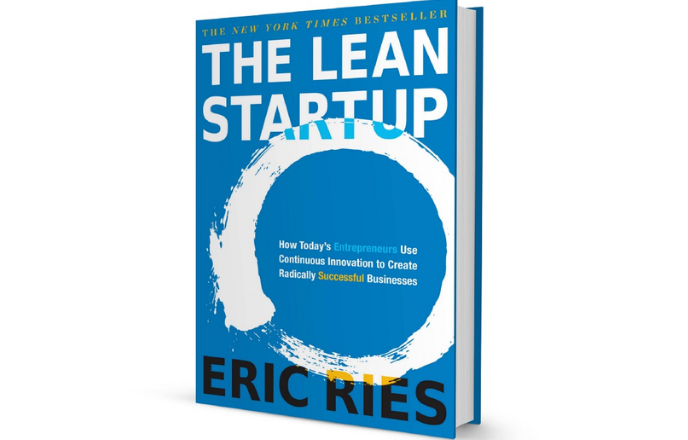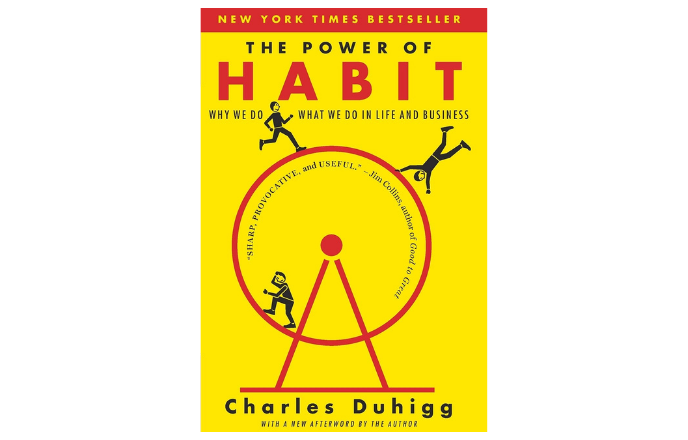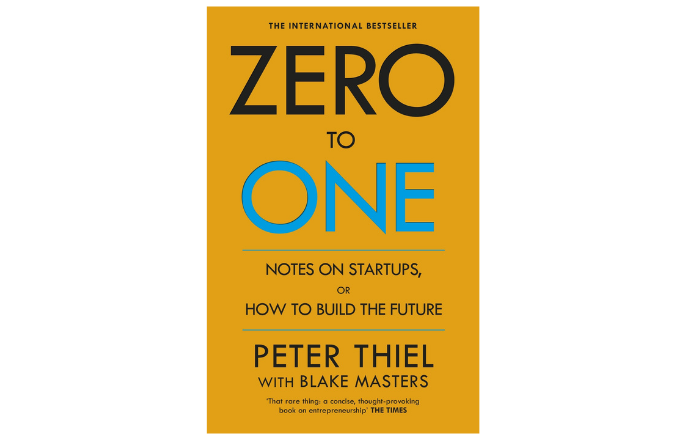Looking for business administration books? You’re in the right place.If you want to level up your business knowledge, here are brunchwork’s top 15 picks for some of the best business administration books you can read this year.
This list is a great starting point. If you want to keep building your business knowledge, explore our online business class. In the 7-week “Business Intensive” class, you will learn business administration in 7 weeks with actionable projects and expert speakers.
Best Business Administration Books to Read in 2022
1. The Lean Startup by Eric Ries
2. Blue Ocean Strategy by Renée Mauborgne and W. Chan Kim
3. Leadership Step By Step by Joshua Spodek
4. The 80/20 Principle by Richard Koch
5. The Power of Habit by Charles Duhigg
6. The Innovator’s Dilemma by Clayton Christensen
7. Delivering Happiness by Tony Hsieh
8. Playing to Win: How Strategy Really Works by A.G. Lafley and Roger L. Martin
9. Factfulness: Ten Reasons We’re Wrong About the World by Hans Rosling
10. Radical Candor by Kim Scott
11. Too Big to Fail by Andrew Ross Sorkin
12. First, Break All The Rules by Marcus Buckingham and Curt Coffman
13. Zero to One: Notes on Startups, or How to Build the Future by Peter Thiel and Blake Masters
14. Outliers by Malcolm Gladwell
15. The Essays of Warren Buffett: Lessons for Corporate America edited by Lawrence Cunningham
Best Business Administration Books: Descriptions
1. The Lean Startup by Eric Ries 
If your career aspiration is to found a start-up, consider enrolling in an entrepreneurial seminar to put the Lean Startup methodology into action.
2. Blue Ocean Strategy by Renée Mauborgne and W. Chan Kim Blue Ocean Strategy shows you how to capture an uncontested marketplace, creating new categories for business success. It claims that the current market is like a red ocean where companies fight their rivals for greater market share. Rather than join the red ocean, it shows how companies, such as Cirque Du Soleil, have found success by offering something completely different from what’s already available.
3. Leadership Step by Step by Joshua Spodek Leadership Step By Step is by Joshua Spodek, an author and professor with a PhD in astrophysics. His professional versatility translates easily into his book. Leadership Step by Step transcends the traditional model of teaching philosophies of leadership and advocates for the active practice of leading.
4. The 80/20 Principle by Richard Koch The 80/20 principle, also known as the Pareto principle, claims that 20% of our work produces 80% of the results. It explains how narrowing your focus and ignoring the smaller distractions allows you to get more done.
5. The Power of Habit by Charles Duhigg 
6. The Innovator’s Dilemma by Clayton Christensen Even some of the greatest innovative companies fail. Christensen argues that failure occurs because of the consistent need for companies to develop new and innovative products. Innovation can be challenging to assess because it has a “fluid future,” meaning it is difficult to know what will happen once the market has matured. The Economist has named The Innovator’s Dilemma book as one of the 6 most important books about business ever written. Learn more with Christensen’s detailed multi-industry study.
7. Delivering Happiness by Tony Hsieh Written by the Zappos founder Tony Hsieh, Delivering Happiness teaches readers how to build a profoundly great company culture. Tony Hsieh’s three main factors that guide the path are: hire and fire based on your values. Create a yearly public culture book, where all employees can comment on the state of the company culture anonymously. Start all employees in customer service. Check out this New York Times #1 Best Seller to learn more about how to do the same for your company.
8. Playing to Win: How Strategy Really Works by A.G. Lafley and Roger L. Martin A sound strategy is a key factor to win in any business. Former Procter & Gamble chairman and CEO, A.G. Lafley and Roger L. Martin, former dean of Rotman School of Management, give five key questions business leaders must answer to build a strong plan to win. The questions are: What is your winning aspiration? Before building a strategy you must first define what winning looks like for your organization. Where will you play? Focus your attention, know where you want to compete, and where you don’t. How will you win? Know your competitive advantages and your weaknesses, and use them to guide your strategy. What capabilities must be in place? Understand what your organization can do and what you need to improve on in order to execute. What management systems are required? Build an organization and a structure that can deliver on your strategy. Check out the book to learn how A.G. Lafley applied these strategies to win at Procter & Gamble and to gain a detailed understanding of how to build a winning approach in business.
9. Factfulness: Ten Reasons We’re Wrong About the World by Hans Rosling Written by Swedish Statistician, Hans Rosling, Factfulness proves that most people’s knowledge about the world is skewed, and he criticizes the idea of the developing world vs. the developed world, claiming that 85% of the world falls into the ‘developed’ category. Additionally, he explains 10 human instincts that cause individuals to have a distorted perception of the world. Some of these instincts include: the blame instinct, which is the tendency to look for easy reasons for why something bad happens, and the size instinct, which is the tendency to skew the proportions of numbers in isolation. Bill Gates claims that Factfulness is one of the “best books [he’s] ever read.”
10. Radical Candor by Kim Scott In Radical Candor, Silicon Valley CEO Coach, Kim Scott shows how to build an organization that is honest and humane. She claims that people’s perception of professionalism causes them to be less honest and vulnerable. Instead, Kim Scott claims that success comes when you challenge this idea and share your thoughts, ideas, and opinions directly. Use this book to guide your feedback framework to build a more honest rapport and relationship with your coworkers.
11. Too Big to Fail by Andrew Ross Sorkin If you ever wanted to learn about the 2008 financial crisis from the perspectives of Wall Street CEOs and US government regulators, this book is for you. Learn the ins and outs of why financial institutions such as Lehman Brothers failed, and how Treasury Secretary Henry Paulson worked to keep other organizations afloat. Utilize Too Big to Fail to understand some of the past corruptions of the financial system and learn how to not make the same mistakes in your own career.
12. First, Break All The Rules by Marcus Buckingham and Curt Coffman Marcus Buckingham and Curt Coffman’s First, Break All The Rules, takes 25 years of research with over 80,000 management interviews to show you what the best managers do and don’t do in their organizations. It claims that all employees should be selected for talent rather than experience, and that they should be treated as individuals. This book will challenge what you know about management and shows you how to set up your employees for success.
13. Zero to One: Notes on Startups, or How to Build the Future by Peter Thiel and Blake Masters 
14. Outliers by Malcolm Gladwell Malcolm Gladwell’s Outliers explains what it takes for individuals to achieve extreme success. He believes that the way that society approaches success is wrong and that there are different unique factors that explain why. Learn more about the 10,000 hour rule and how cultural legacies have an effect on the success of different communities.
15. The Essays of Warren Buffett: Lessons for Corporate America edited by Lawrence Cunningham Master investor Warren Buffet shows how to analyze businesses properly and explains his strategies for when and how to invest. Buffet claims that great investors analyze businesses individually, rather than the market as a whole, and they hold their investments for long periods of time. Whether you are looking to expand your personal portfolio or want to learn how investors analyze businesses, this book is a masterclass in how Berkshire Hathaway operates.
Conclusion:
With the constant changes in the business world, it is important to keep your business administration knowledge as sharp as possible. Learn how to lead changing times and how to build a strong company culture.
Use brunchwork’s top business administration books to guide your business journey. Looking to take the next step in your business career? Check out brunchwork’s Business Intensive to learn from top business leaders, expand your network, and skill up.
Which books do you want to read? Are there any that we missed? Let us know!
For more invaluable business insights, enjoy these best MBA podcasts and best business movies, subscribe to our weekly newsletter and check out our online business class.
